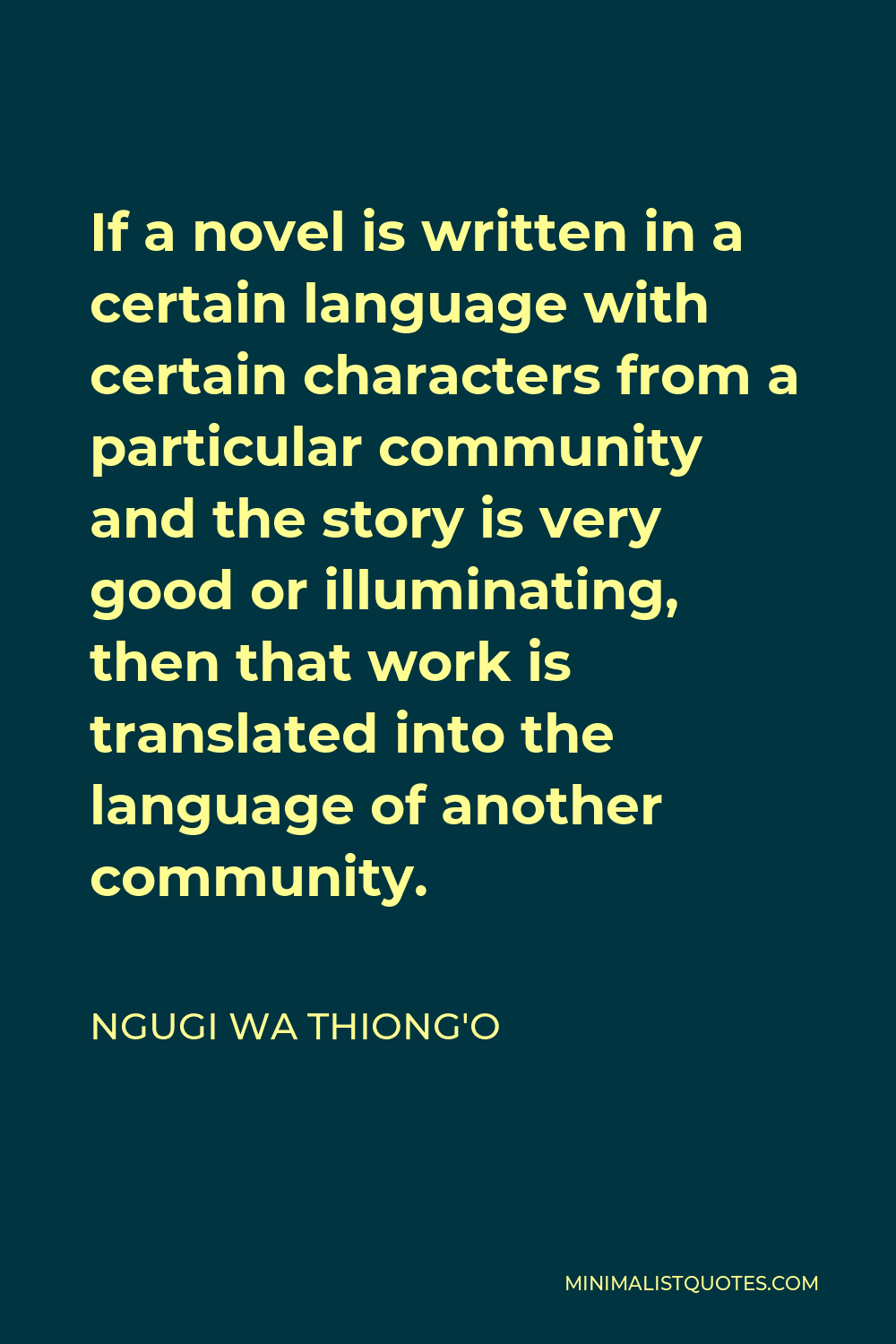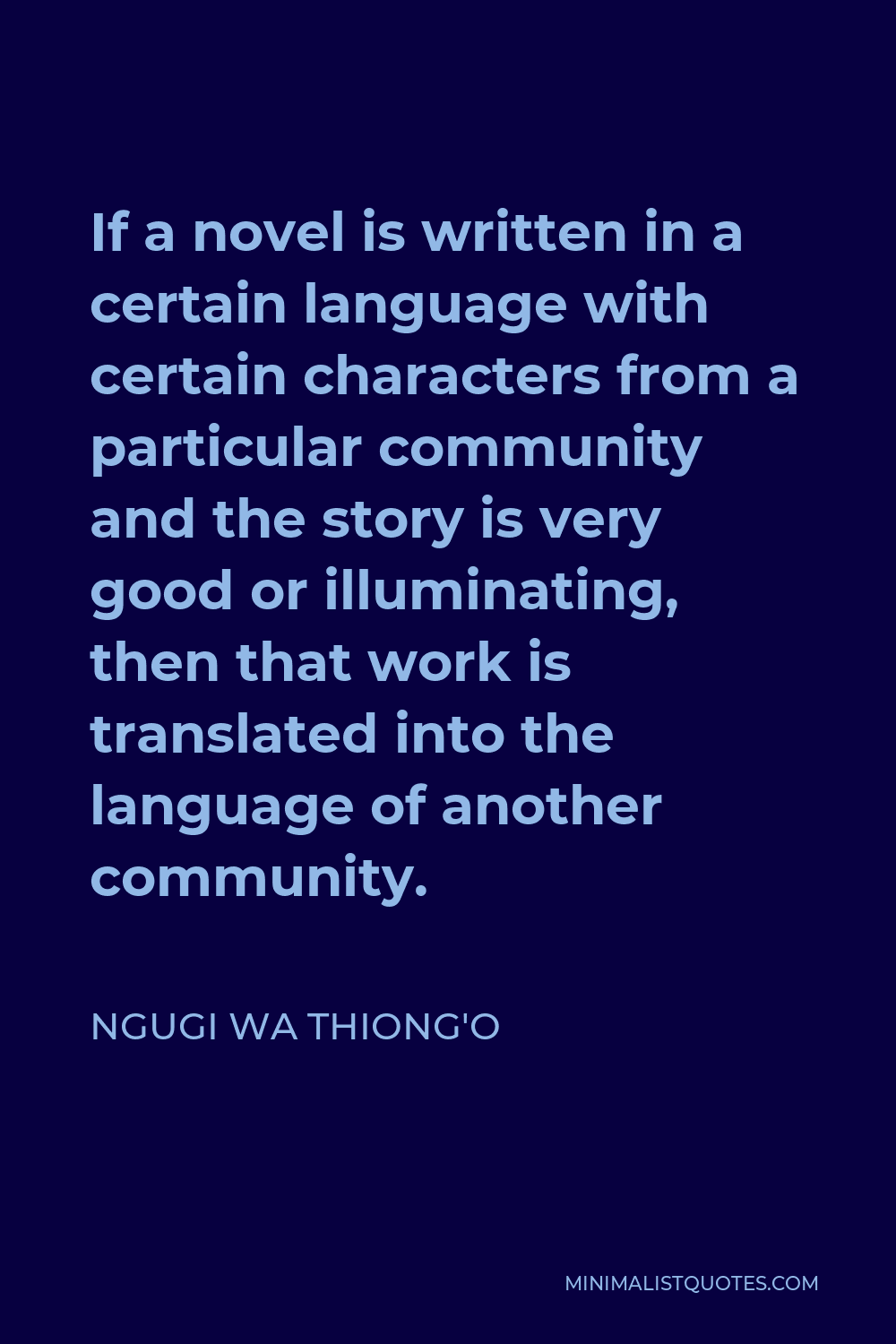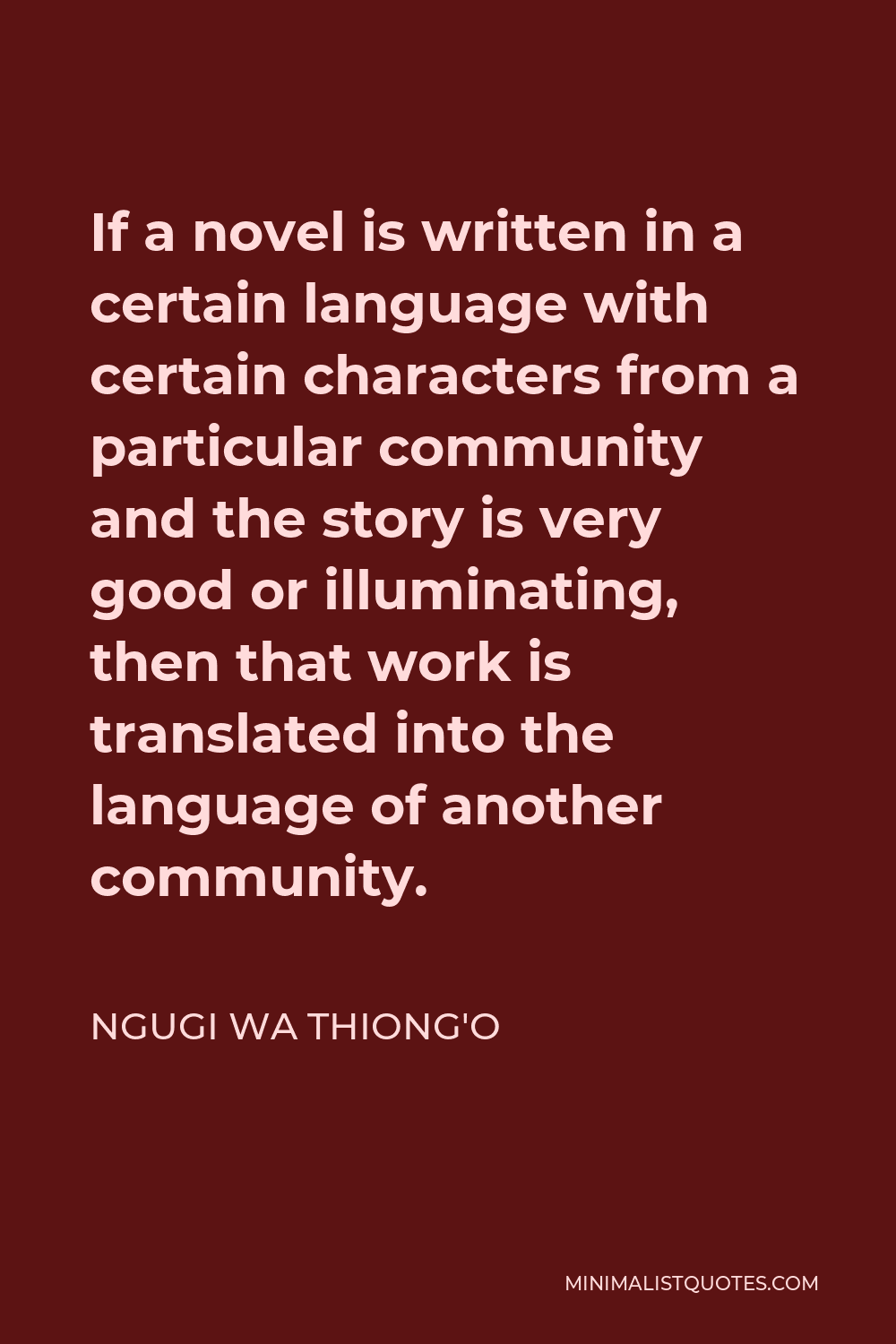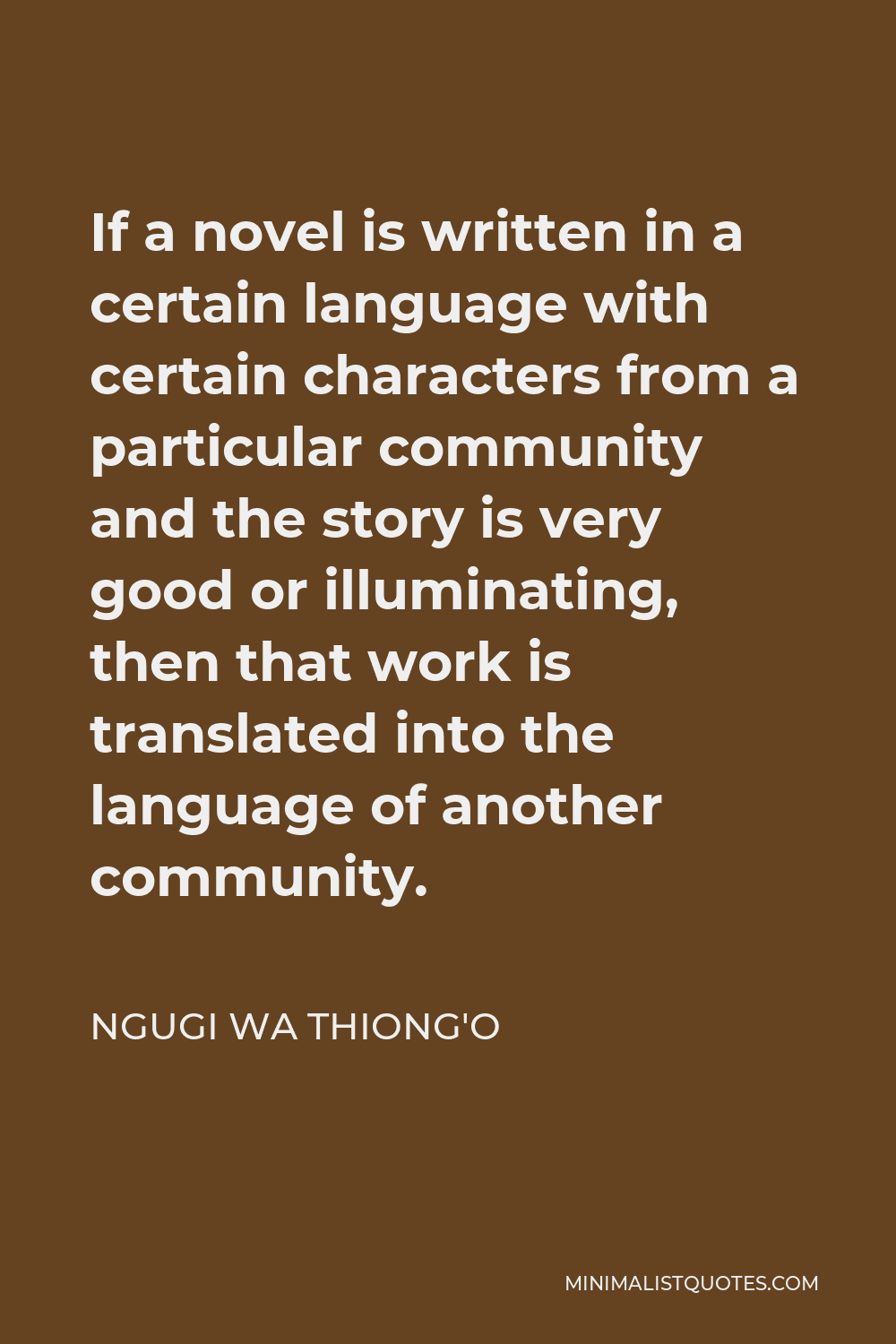It was a revelation for me, in a practical sense, that you could write in an African language and still reach an audience beyond that language through the art of translation.
NGUGI WA THIONG'OIf a novel is written in a certain language with certain characters from a particular community and the story is very good or illuminating, then that work is translated into the language of another community.
More Ngugi wa Thiong'o Quotes
-





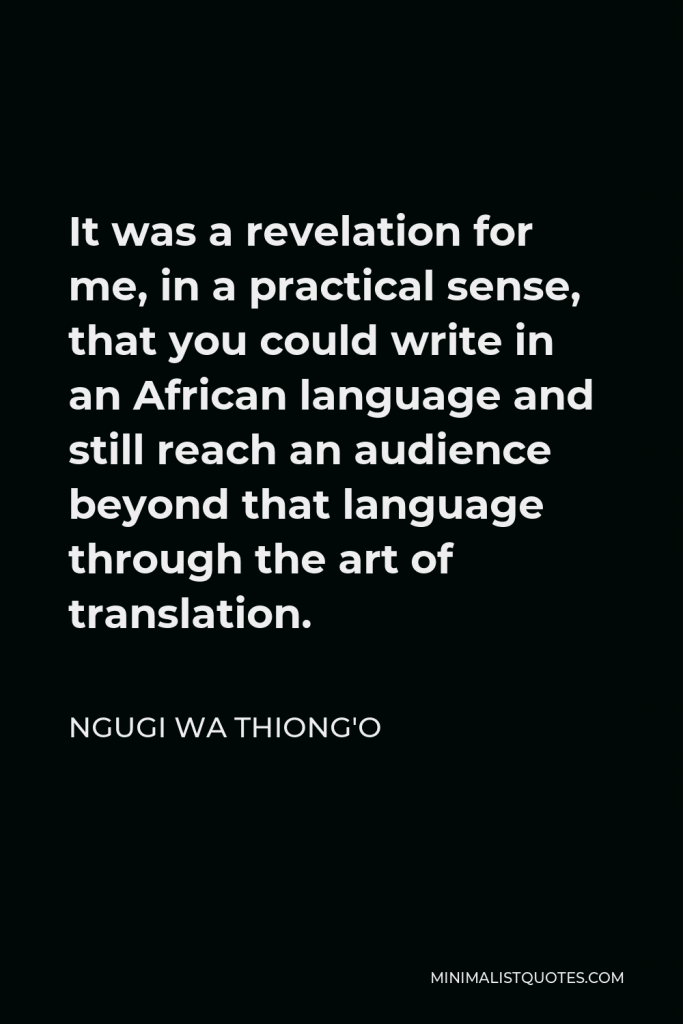

-





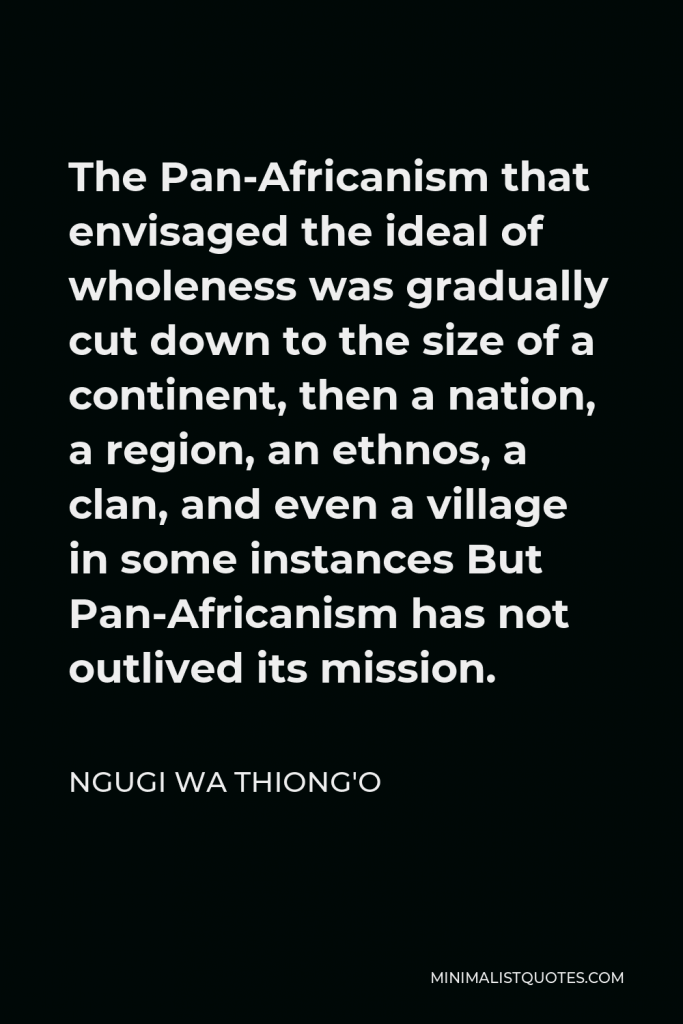

The Pan-Africanism that envisaged the ideal of wholeness was gradually cut down to the size of a continent, then a nation, a region, an ethnos, a clan, and even a village in some instances But Pan-Africanism has not outlived its mission.
NGUGI WA THIONG'O -





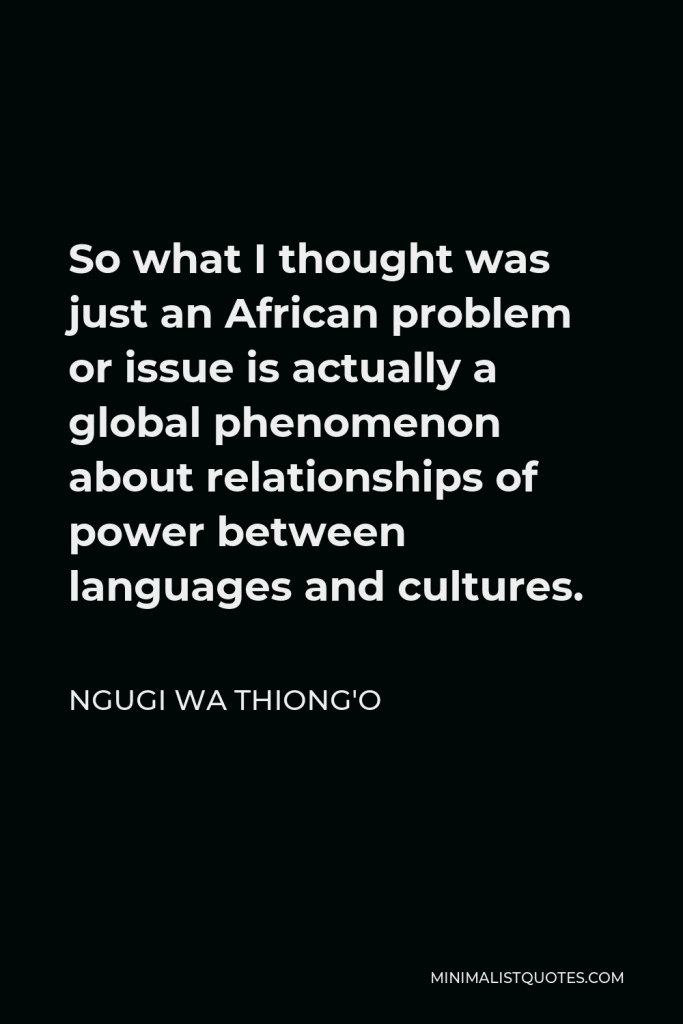

So what I thought was just an African problem or issue is actually a global phenomenon about relationships of power between languages and cultures.
NGUGI WA THIONG'O -





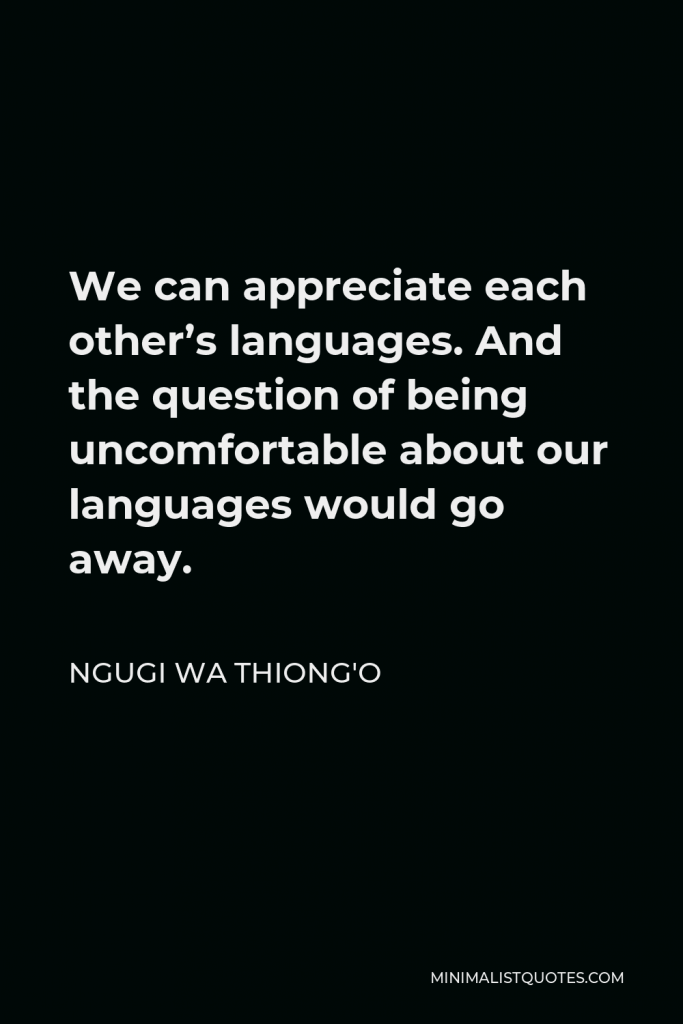

We can appreciate each other’s languages. And the question of being uncomfortable about our languages would go away.
NGUGI WA THIONG'O -





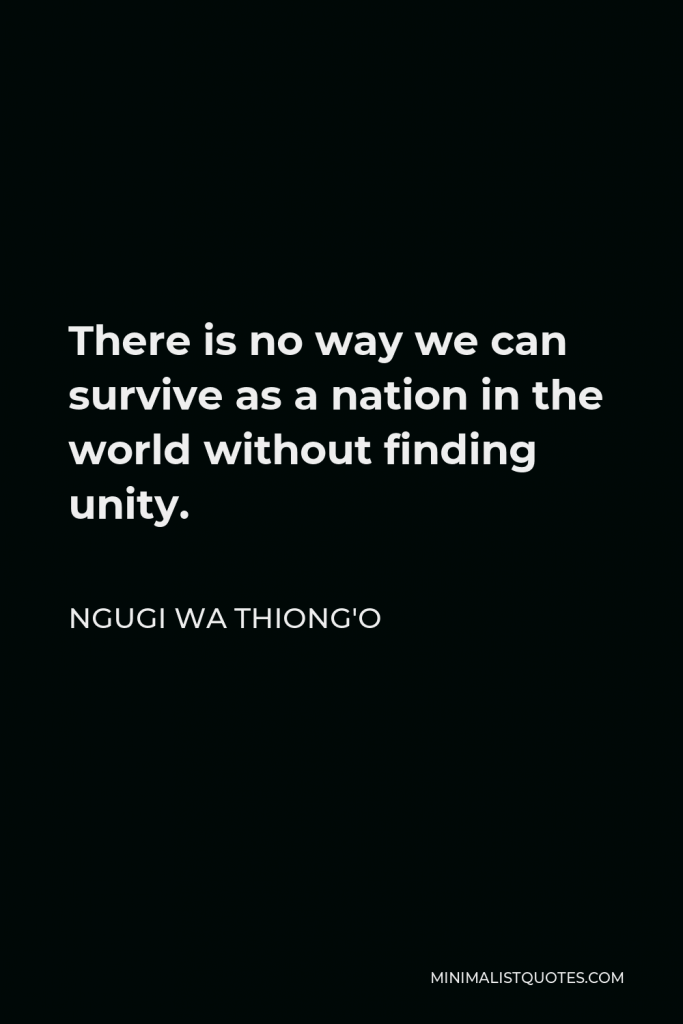

There is no way we can survive as a nation in the world without finding unity.
NGUGI WA THIONG'O -





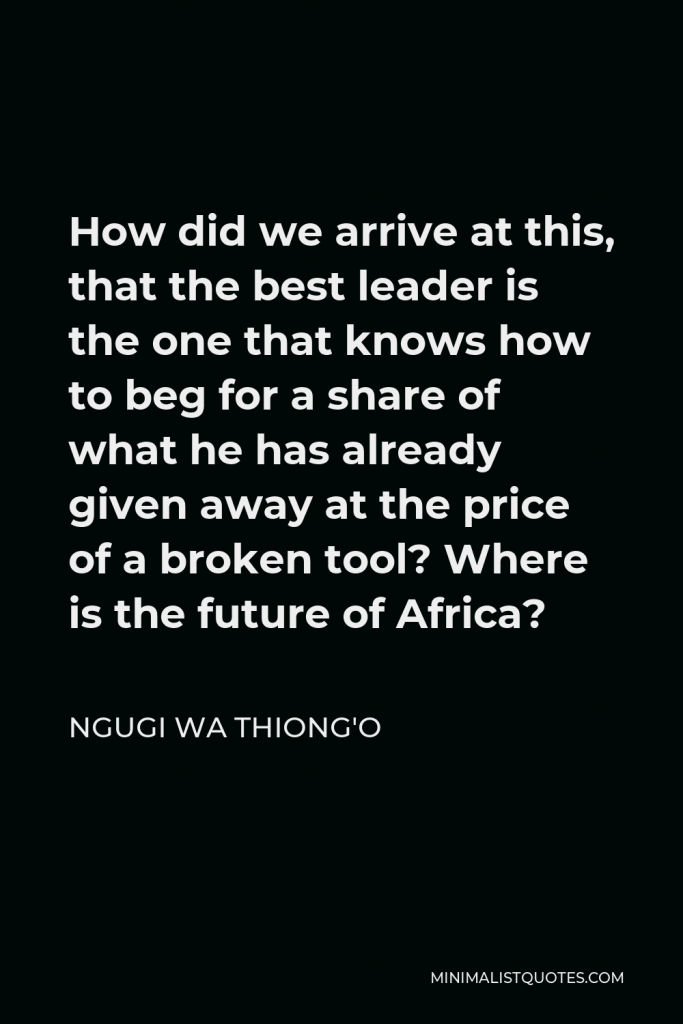

How did we arrive at this, that the best leader is the one that knows how to beg for a share of what he has already given away at the price of a broken tool? Where is the future of Africa?
NGUGI WA THIONG'O -





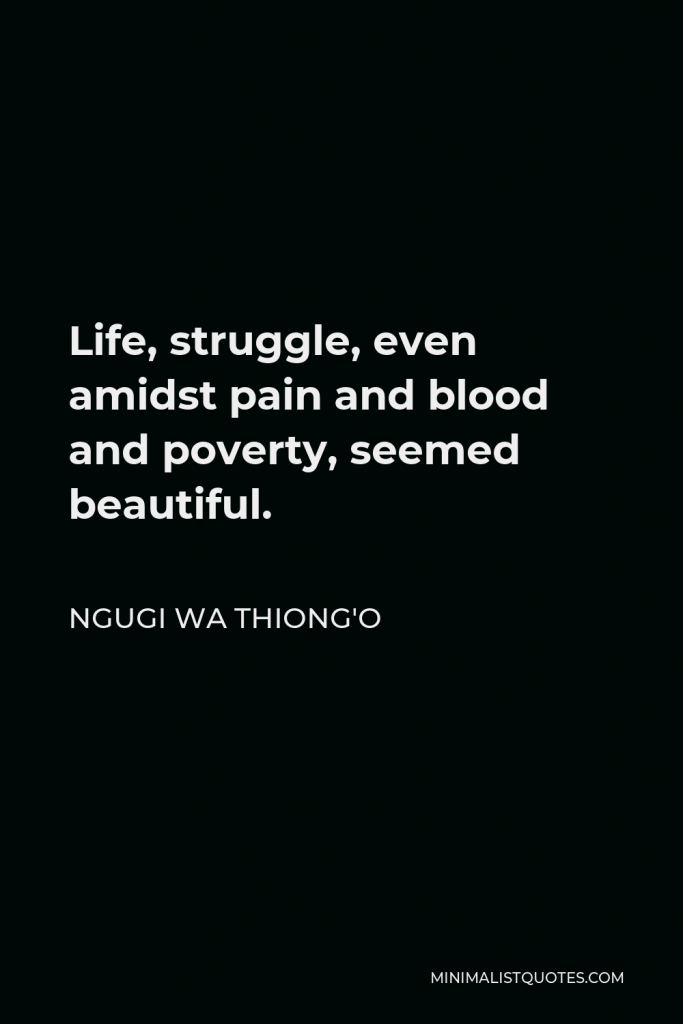

Life, struggle, even amidst pain and blood and poverty, seemed beautiful.
NGUGI WA THIONG'O -





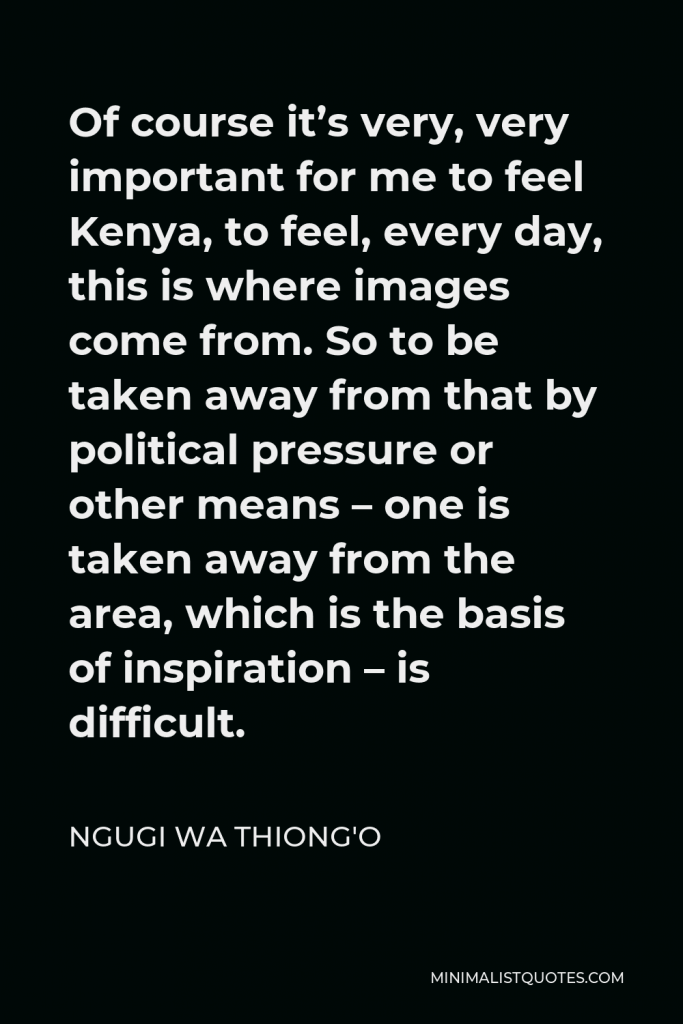

Of course it’s very, very important for me to feel Kenya, to feel, every day, this is where images come from. So to be taken away from that by political pressure or other means – one is taken away from the area, which is the basis of inspiration – is difficult.
NGUGI WA THIONG'O -





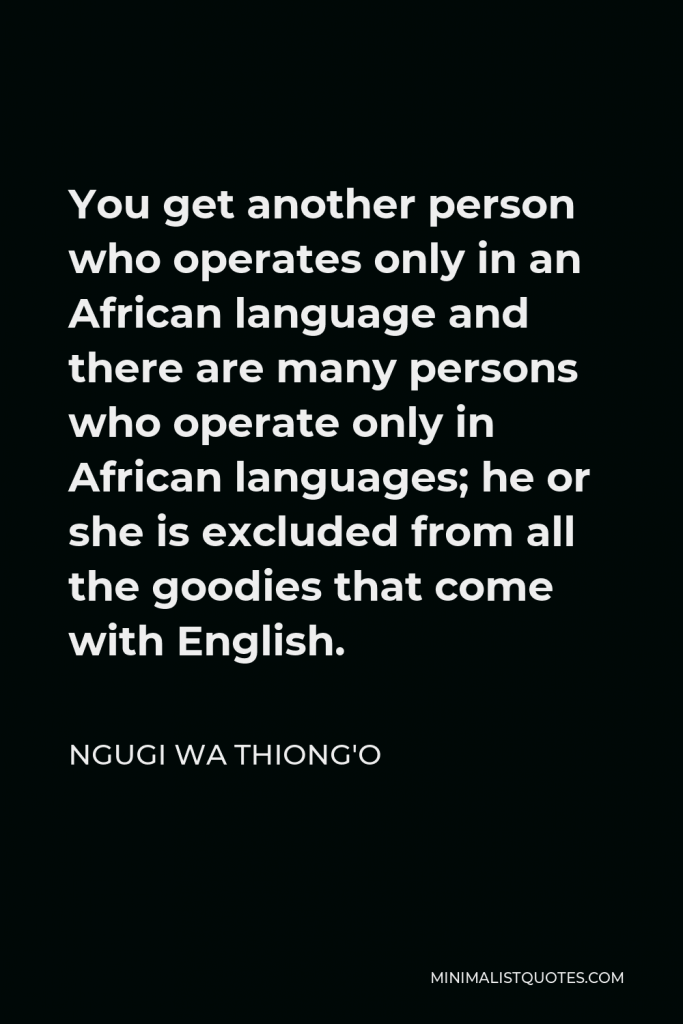

You get another person who operates only in an African language and there are many persons who operate only in African languages; he or she is excluded from all the goodies that come with English.
NGUGI WA THIONG'O -





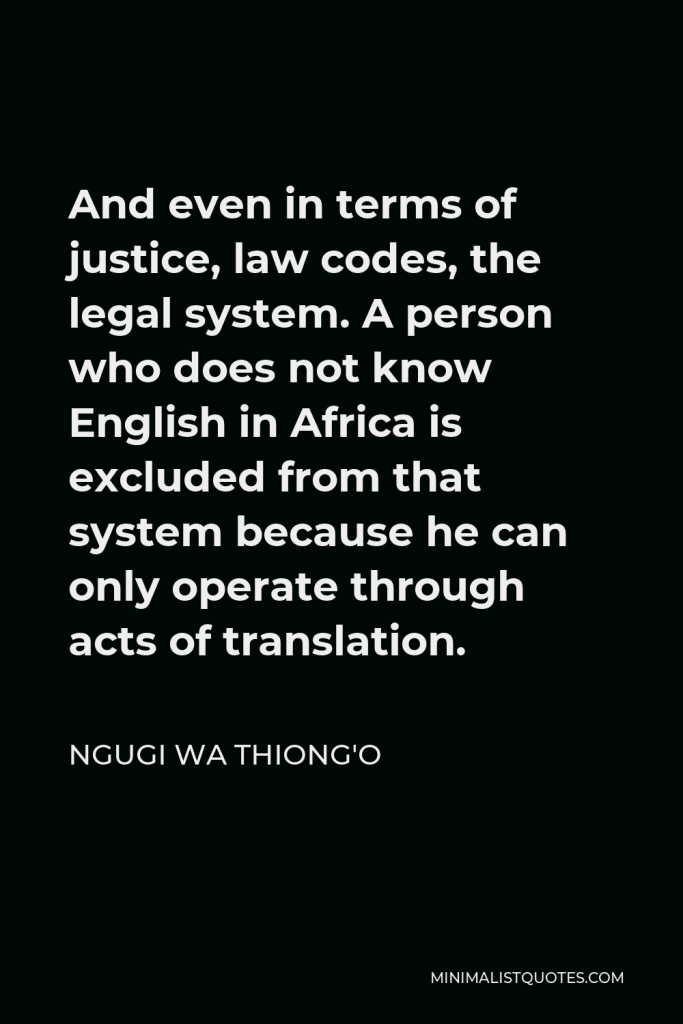

And even in terms of justice, law codes, the legal system. A person who does not know English in Africa is excluded from that system because he can only operate through acts of translation.
NGUGI WA THIONG'O -





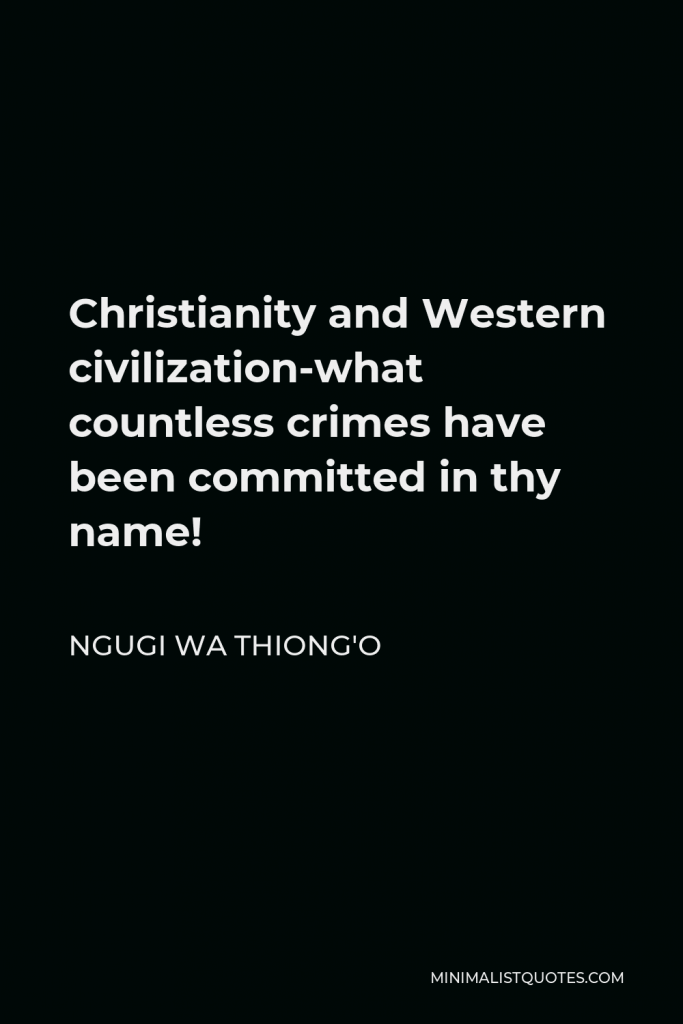

Christianity and Western civilization-what countless crimes have been committed in thy name!
NGUGI WA THIONG'O -





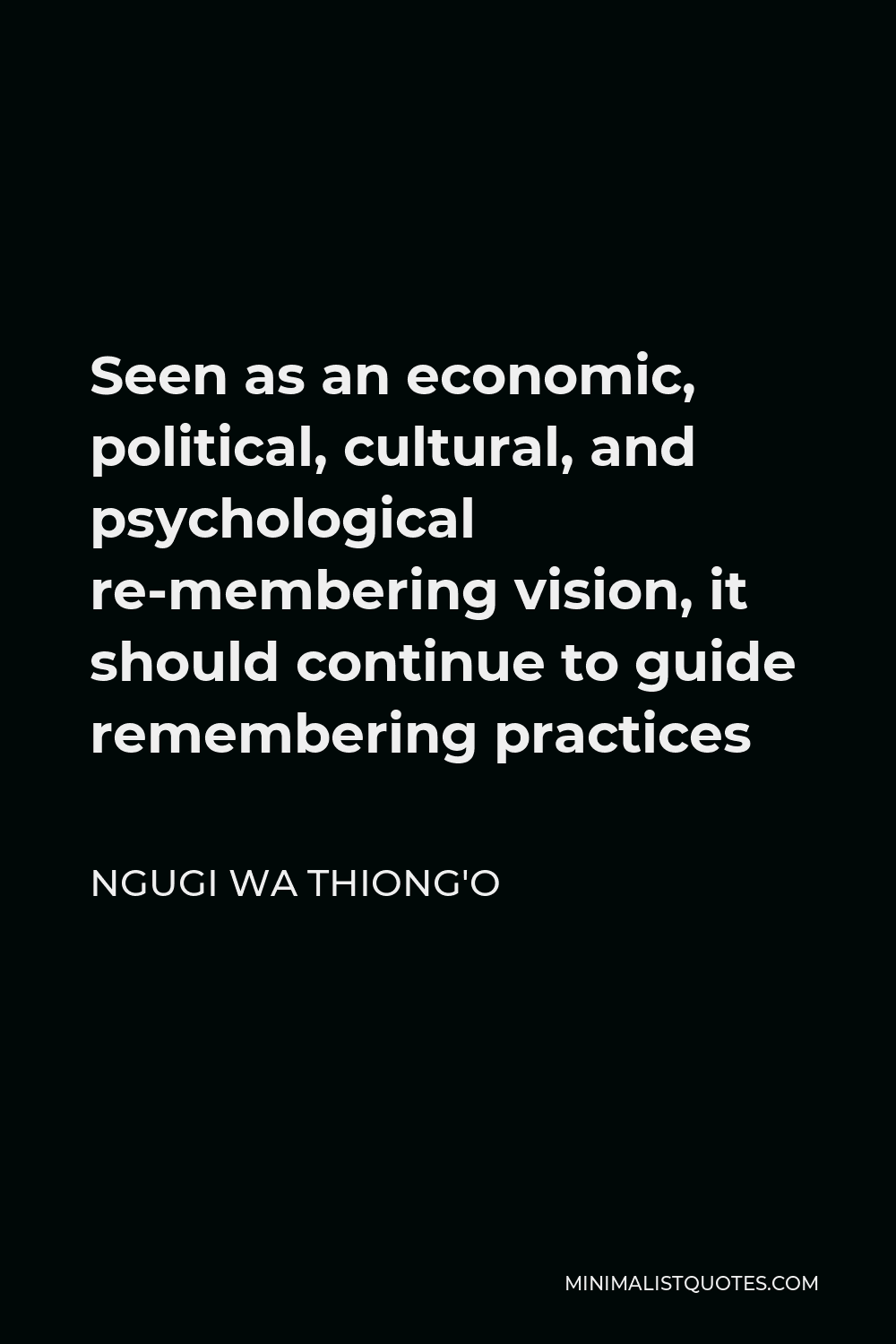
Seen as an economic, political, cultural, and psychological re-membering vision, it should continue to guide remembering practices
NGUGI WA THIONG'O -





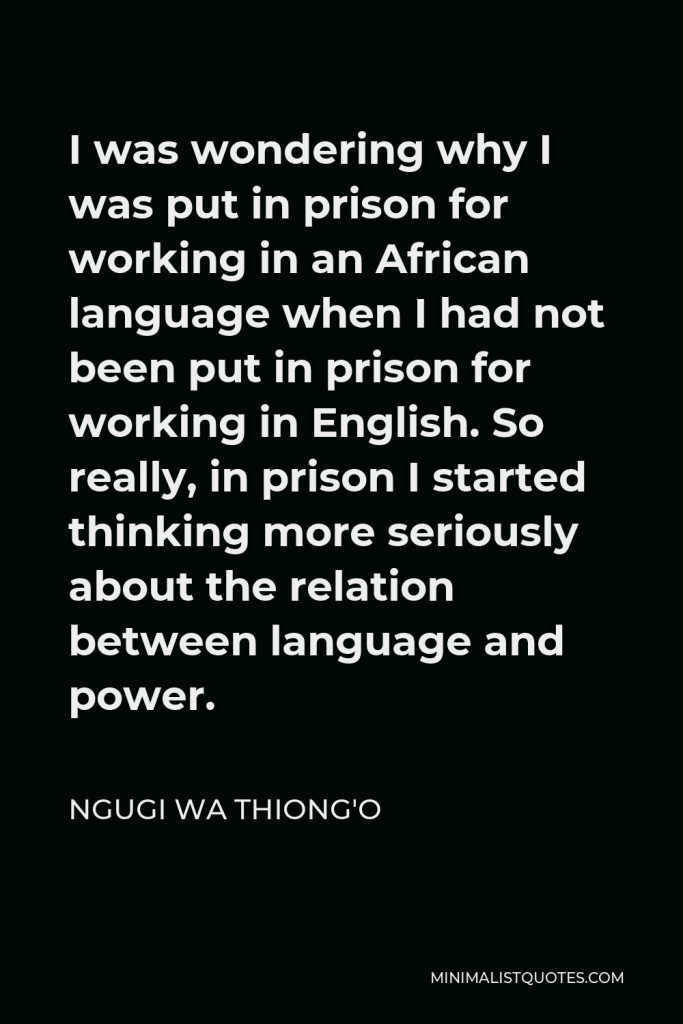

I was wondering why I was put in prison for working in an African language when I had not been put in prison for working in English. So really, in prison I started thinking more seriously about the relation between language and power.
NGUGI WA THIONG'O -





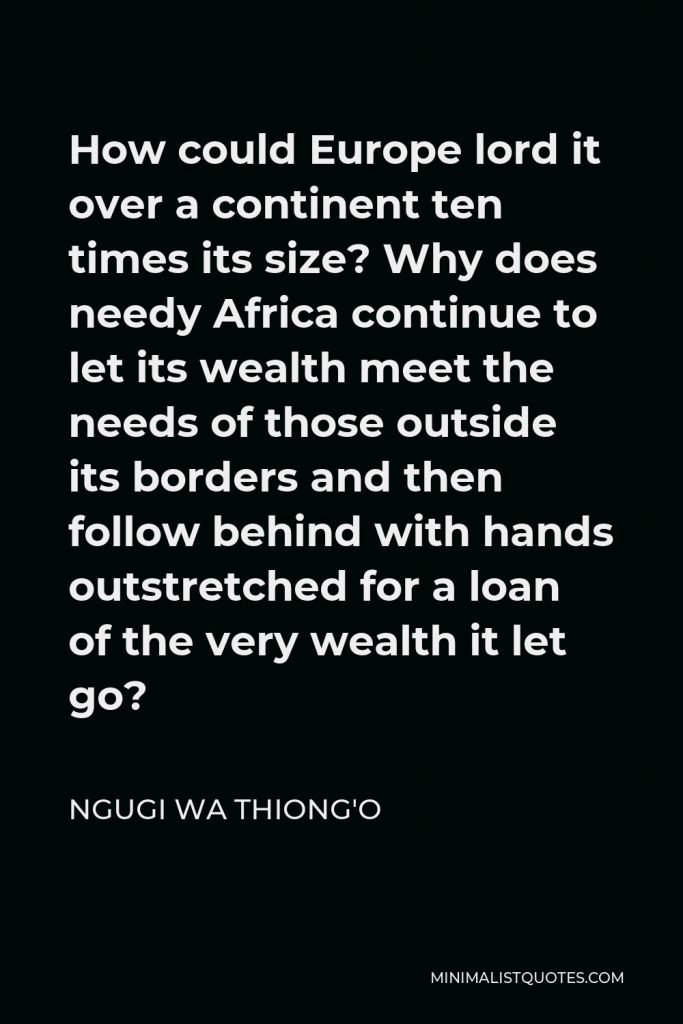

How could Europe lord it over a continent ten times its size? Why does needy Africa continue to let its wealth meet the needs of those outside its borders and then follow behind with hands outstretched for a loan of the very wealth it let go?
NGUGI WA THIONG'O -





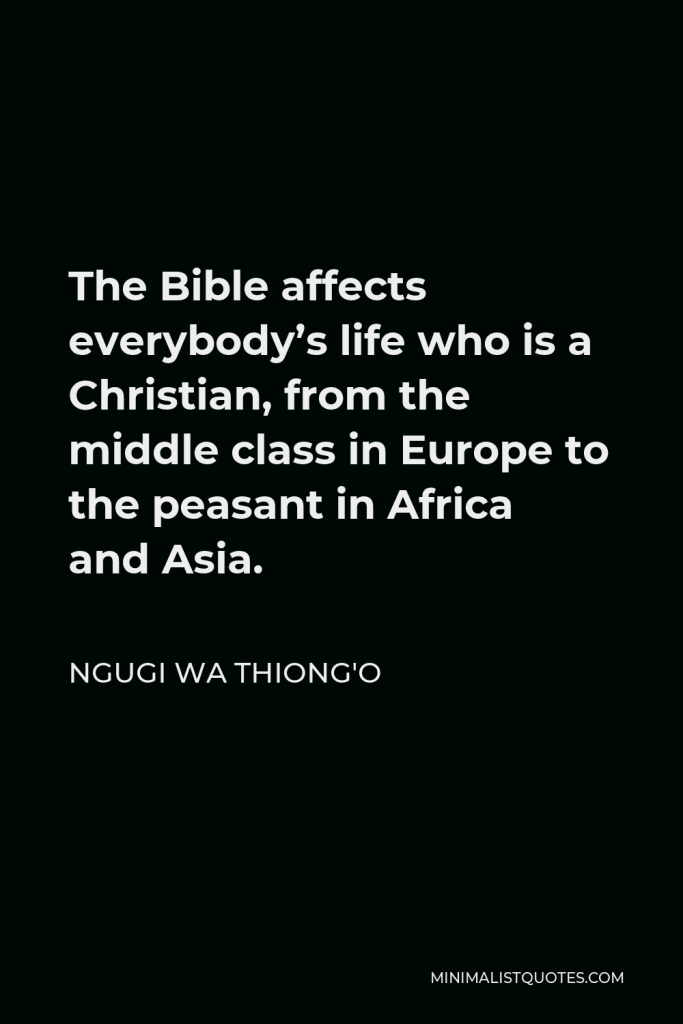

The Bible affects everybody’s life who is a Christian, from the middle class in Europe to the peasant in Africa and Asia.
NGUGI WA THIONG'O -





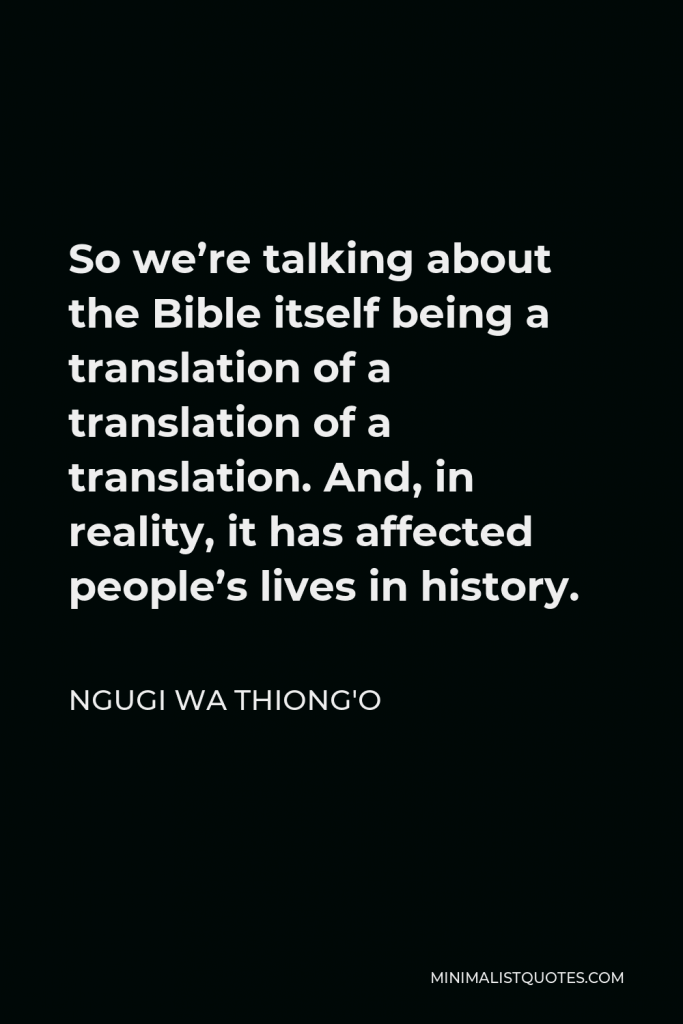

So we’re talking about the Bible itself being a translation of a translation of a translation. And, in reality, it has affected people’s lives in history.
NGUGI WA THIONG'O

